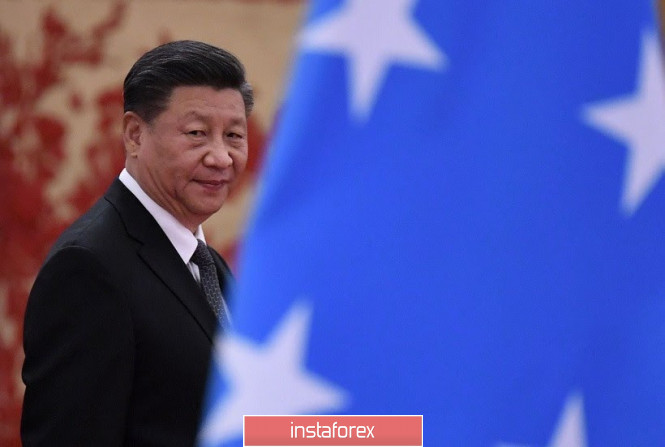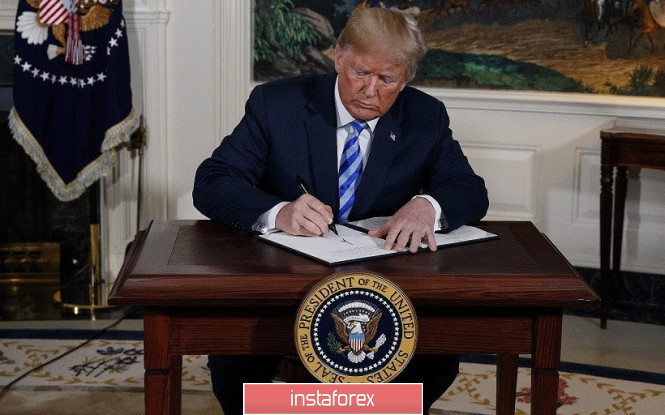After falling from the levels of many-month highs, the euro-dollar pair took the price level in the middle of the 10th figure. The EUR/USD bears could not lower the price below 1.0980 (the lower line of the Bollinger Bands on the daily chart), while the bulls are not able to return the pair to their previous positions. Amid low liquidity and pre-holiday phlegmatic trading, the pair got stuck in a flat waiting for information drivers. Rare news and near-market rumors are pushing the price up or down - but in fact, the foreign exchange market has already fallen into traditional pre-Christmas suspended movement with low volatility.
The EUR/USD pair has already managed to update session (and at the same time weekly) lows on Tuesday, being marked at 1.1069. However, then the buyers seized the initiative, and the pair updated the daily high, although they did not leave the boundaries of the 10th figure. On the one hand, such price fluctuations can be called market noise, but, on the other hand, during a period of general lull, such price jumps are of interest - what fundamental factors could stir traders from the holiday hibernation?

For example, the dollar came under pressure on Monday after the release of unexpectedly weak data on the growth of orders for durable goods. The overall indicator collapsed to -2% with a forecast of growth to 0.2%. Without taking into account transport, the indicator dropped to zero, although according to forecasts it was supposed to grow immediately by 1.5%. While European statistics provided little support for the euro: the German import price index significantly grew in monthly terms (+0.5% instead of the projected increase to 0.1%), although in annual terms it remained in the negative area (but still came out in the green zone, better than expected). This indicator is an early signal of changes in inflationary trends; therefore, its positive dynamics kept the euro from further decline - including paired with the dollar. Towards the end of yesterday, the dollar received support from China - it became known that the Chinese government will reduce import tariffs on a wide range of goods (total 859 types) from January 1, including certain types of food products, consumer goods and spare parts production of smartphones. The market interpreted Beijing's actions as a friendly step by China in the context of recent events, although it made this decision independently, outside the negotiation process.
The news flow has completely dried up on Tuesday- in preparation for Christmas, so the economic calendar is almost empty. During the US session, only the Federal Reserve's Richmond secondary index was published, which showed negative dynamics (it dropped to -5 points instead of the expected decline to -1). At the same time, the market also turned its attention to the external fundamental background, after which the dollar again came under additional pressure. The reason for this is the growing tension between Washington and Beijing. Dollar bulls did not have time to take advantage of the thaw period. True, in this case we are talking about a conflict not of an economic but of a political nature.
The fact is that on Monday, Trump signed the bill on the US military budget for next year. Even at the stage of consideration of this document in Congress, China expressed its indignation regarding some of its points. In particular, the signed law expresses support for Hong Kong protesters, who for several months have been trying to overthrow the pro-Chinese city administration. The United States also expressed their intention to bypass China to increase Taiwan's defense capabilities and combat readiness (including through joint exercises and arms sales). Beijing considers Taiwan its province, which, if necessary, can be forcibly combined with mainland China. Therefore, it is not surprising that the Chinese perceived the US defense budget as interference in the internal affairs of the state. After Trump nevertheless signed this bill, China through diplomatic channels protested to the American side. In addition, a representative of the Chinese Foreign Ministry later said that if the above-mentioned military budget provisions are implemented by Washington, relations between the countries will deteriorate significantly, and the situation in the region will be destabilized.

Such prospects are confusing dollar bulls. On the one hand, recently passed laws in the United States supporting protesters in Hong Kong did not prevent the parties from agreeing on the first phase of the deal. On the other hand, the second stage of the dialogue promises to be much more difficult, while the above circumstances will clearly not contribute to mutual concessions.
That is why the dollar lost points throughout the market on Tuesday. The EUR/USD pair was no exception here - during the US session, the price regained its position, thereby extinguishing the downward impulse. However, one cannot talk about cardinal changes now since the thin market is too unstable.
The material has been provided by InstaForex Company - www.instaforex.com